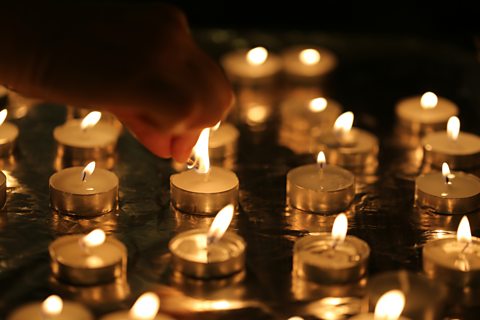The role and status of women
The sacred scriptures of Judaism (the TanakhThe collected 24 books of the Jewish Bible. There are three sections: Torah, Nevi'im and Ketuvim (TaNaKh). May also be spelled Tenakh. and the TalmudA collection of ancient Jewish civil and ceremonial law comprised of the Mishnah and Gemara.) describe different roles for men and women.
Traditionally women have a sacred role - they bear children, run the home and take responsibility for their childrenÔÇÖs Jewish upbringing. The woman passes on Jewish values.
While Jewish law excuses women from some religious duties (eg they donÔÇÖt have to wear the tzizitSpecially knotted ritual fringes worn in Judaism. and tefillinSmall leather boxes containing passages from the Torah. Jewish men strap these to their forehead and arm for morning prayers on weekdays.), there are some duties that women are obliged to carry out. One of these duties is the lighting of the ShabbatThe seventh day of the week; a day of spiritual renewal and rest commencing at sunset on Friday and terminating at nightfall on Saturday. candles.

Some people say that Judaism is sexistShowing prejudice or discrimination towards someone based on their sex.. Men and women sit separately in Orthodox (Judaism)The most traditional branch of Judaism. services and women cannot take an active part in this worship. Some Jewish women today accept these limitations, but they are as well-educated as men and choose to combine a career with family responsibilities.
Progressive Jews (which includes Jews of both Liberal JewsJews who are willing to adapt religious law to modern life. and Reform JudaismThe name given to various traditions within Judaism which maintain that Judaism and Jewish traditions should be modernised and made compatible with the surrounding culture. traditions) treat women equally in all respects, so women too can become rabbiA religious teacher and leader with authority to make decisions on issues of Jewish law. A rabbi is the chief religious official of a synagogue, who often (but not always) leads worship and conducts rites and rituals. if they choose to do so.